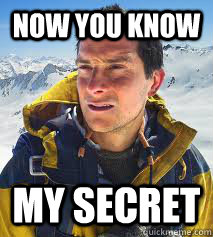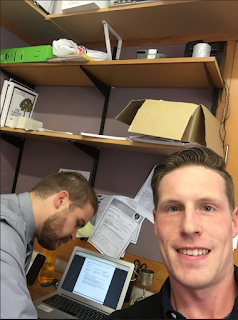Today, we have sent out information to Principals and DRS' about the Year 7 and 8 Church Strand Project. Below is the complete picture with links to resources and structures around this programme.
RE Digital Resources Development - Research/Professional
Learning Project
Learner-centred
approaches to technology-enabled learning can empower learners and leverage
good learning experiences that would not otherwise have been possible.
Technology also often offers valuable tools for other building blocks in
effective learning environments, including personalisation, co-operative
learning, managing formative assessment, and many inquiry-based methods.[1]
You can say today we are not
living an era of change but a change of era … [t]his, our time,
requires living problems as challenges and not obstacles: the Lord is active in
the work of the world … [w]herever you are, never build walls or
borders, but meeting squares and field hospitals.[2]
The genesis of our
research/learning project
As part of our ongoing commitment to ensuring that Religious
Education (RE) is delivered in the same robust manner as all curricula areas we
sought to begin a process whereby we create interactive online resources to
support the Years 7 to 9 RE Curriculum.
Our aim is to assist the teaching/learning process by
providing busy classroom RE teachers with resources that engage the learner. By
providing theologically and educationally sound digital RE resources for the
classroom we hope to increase the time teachers have to focus on the learning
of their students.
In this way we seek to augment the existing RE programme,
available to teachers on Faith Alive, and
make the learning process relevant and engaging for the 21st century
classroom.
Please be assured that whilst digital pedagogy and resource
provision is the major focus of this research/professional learning project, we
are acutely aware that the identity of a classroom hinges on the relationship
between student and teacher; in other words, the human person is at the centre
of our classrooms.
Our desire is to support, in and through our RE classrooms,
the wonderful words and approach outlined by Pope Francis in his 2015 World Communications Day
message:
“By growing daily in our
awareness of the vital importance of encountering others … we will employ
technology wisely, rather than letting ourselves be dominated by it … [t]he
great challenge facing us today is to learn once again how to talk to one
another, not simply how to generate and consume information.”[3]
In attempting to achieve these aims we are committed to
working with classroom RE teachers and Catholic school leaders to enhance daily
RE teaching practice and daily RE student experience throughout the Diocese
(and ultimately beyond the Diocese of Christchurch).
We see no reason why we, collectively, cannot be national
leaders in this important process.
Achieving the best possible
academic standards is a goal for all Catholic schools. […] Parents should not
have to choose between the best academic standards and a Catholic education;
the Catholic school should employ them both. Expecting and facilitating the
achievement of the best possible academic standards for all children, whatever
their ability, is part of enabling each student to use his or her God-given
talents in promoting the good of society and to spread the Kingdom of God.[4]
First tentative
steps in exploring the concept
We advertised and called for principals to nominate a
suitable classroom teacher from their school to come into the Catholic
Education Office, to work for two weeks with Cushla O’Connor (Primary RE
Adviser) and Jeremy Cumming (Secondary RE Adviser) as we begin, with very
wobbly initial baby steps, our (long) journey towards developing a bank of
online classroom RE resources to support the mandated Years 1 to 13 RE
Curriculum.
Rory Paterson (B Theol) was duly seconded for two
weeks.
Rory is the Deputy Principal at St Patrick’s School, Greymouth.
A delightful surprise of the initial advertising process and
dialogue was the willingness of Lorraine Frances-Rees (MRE) to work (at
distance) with the team as our professional mentor and critical friend as we
work up our first set of digital resources for classroom use and, in the next
wee while, receive professional feedback and feedforward from students and
teachers who trial our first set of resources in their RE classrooms.
Lorraine is the Principal at St Joseph’s School, Pleasant
Point.
The team’s brief was to take our first tentative step
towards interactive online classroom resources to enhance the teaching and
learning of RE in classrooms, alongside other good strategies teachers employ
in their classrooms – we say ‘first tentative step’ as we took just one strand,
the Church strand, at one level, Years 7 & 8, as our initial area of focus
for online RE resource development.
In taking our first steps we seek to engage the learner at
the same time as developing their Catholic knowledge and understanding.
We believe our research/professional learning project is
very much in support of that which the Congregation for Catholic Education
notes, in its 2014 Instrumentum Laboris, “Educating Today and Tomorrow:
A Renewing Passion”, as a vital component in teaching as an
instrument for education:
Nowadays, the “way” in which students learn
seems to be more important than “what” they learn, just like the way of
teaching seems to be more important than its contents. Teaching that only
promotes repetitive learning, without favouring students’ active participation
or sparking their curiosity, is not sufficiently challenging to elicit
motivation. Learning through research and problem-solving develops different
and more significant cognitive and mental abilities, whereby students do more
than just receiving information, while also stimulating teamwork. However, the
value of learning contents must not be underestimated. If the way students
learn is relevant, the same applies to what they learn: teachers must know how
to select the essential elements of cultural heritage that has accumulated over
time and how to present them to students. This approach also applies to the
study of the major questions mankind is facing and has faced in the past.
Otherwise, the risk could be to provide a kind of teaching that is only focused
on what seems to be useful now, because it is being required by contingent
economic or social demands, forgetting what is indispensable for the human
person.[5]
Further on in “Educating Today and Tomorrow: A Renewing
Passion”, the Congregation for Catholic Education writers note the complexity
of the teaching/learning process in this 21st century and great time
demands upon teachers:
Professional competence is the necessary
condition for openness to unleash its educational potential. A lot is being
required of teachers and managers: they should have the ability to create,
invent and manage learning environments that provide plentiful opportunities;
they should be able to respect students’ different intelligences and guide them
towards significant and profound learning; they should be able to accompany
their students towards lofty and challenging goals, cherish high expectations
for them, involve and connect students to each other and the world. Teachers
must be able to pursue different goals simultaneously and face problem
situations that require a high level of professionalism and preparation.[6]
Our research/professional learning project aims to work with
teachers and assist teachers in the creation of rich RE classroom learning
environments.
Outline Plan for
the Project
The outline plan for the team’s work, in this initial
exploratory phase of our research/professional learning project, is as follows:
·
provide
online resources for the Church strand at Years 7 & 8;
·
request,
initially, a small selection of teachers to trial these resources in their
classrooms and provide initial feedback and feedforward;
·
use
the flipped learning model to demonstrate to students that questioning is a
highly valued skill for the 21st century and that digging deeper,
through questioning and challenging assumptions, is an important element of the
RE classroom;
|
Pre-Structural
|
Uni-Structural
|
Multi-Structural
|
Relational
|
Extended Abstract
|
|
I don’t really know anything about this
|
I know one thing about this
|
I know three or more things but I’m not
sure when or why to use it
|
I can do this and I know when and why I
should use this
|
I am able to model or teach this to
others; I can even use what I know in other contexts
|
·
provide
opportunities for teachers to create project and inquiry based learning
opportunities whist ensuring appropriate achievement objectives and learning
outcomes of the mandated RE curriculum are covered;
·
seek
to ensure that RE is the source that other curriculum areas spring from;
·
provide,
in the longer term, clarity on the relationship between RE and the wider
concept of Catholic Special Character within a school.
What have we
created so far? - in two short weeks!
In the last two weeks of Term 1, 2016 we have developed,
using Google, a draft RE resource site (populated with resources for the Church
strand only at this first step of our journey) with the following structure:
·
a
teacher page;
·
a
Year 7 student page;
·
a
Year 8 student page.
Each of the student pages has:
·
6
– 7 key ideas;
·
1
video plus learning tasks per key idea;
·
1
learning task per learning objective (from the NZCBC’s mandated RE curriculum);
·
Quizzes/quizlets;
·
Rubrics.
Here is summary of the structure of the Google site we have
created:
|
Teacher Page
|
Year 7 Student Page
|
Year 8 Student Page
|
|
·
Why are we doing this presentation?
·
Achievement objectives.
·
Key statement (sourced from the theological focus).
·
Resource answers.
·
How one accesses the learning tasks.
·
Affective domain tasks
|
·
Key ideas 1 – 6 (may have 2 – 4 learning objectives).
·
Videos – one for each key idea.
·
Learning tasks (one for each learning objective).
·
Watch, summarise and question sheets;
·
Quizzes/Quizlets.
|
·
Key ideas 1 – 6 (may have 2 – 4 learning objectives).
·
Videos – one for each key idea.
·
Learning tasks (one for each learning objective).
·
Watch, summarise and question sheets;
Quizzes/Quizlets.
|
Problems, problems,
problems!
If you’ve read this far you might be thinking of all the
problems that might arise and lots of reasons why this approach to the RE
teaching/learning process is not a good idea!
As we roll out our research/professional learning project,
and we will do so by way of a face-to-face launch with teachers, we will have
the opportunity to talk through potential problems/roadblocks such as these,
and many more we are sure:
|
Potential
Problems & Roadblocks
|
|
|
(a)
Technological
|
(b)
Pedagogical
|
|
·
not everyone has access to 1:1 devices;
·
teachers do not wish to change their method of
delivery;
·
teachers need PD to get comfortable with such methods
of delivery;
·
costs;
·
we are not in line with the rest of NZ;
·
what’s wrong with what we do now?;
·
is this change for change’s sake?;
·
using technology means we will lose our Catholic
Special Character;
·
etc.
|
·
it’s too prescriptive … can’t we choose?
·
I just don’t have the energy for this; I have only
two years until retirement;
·
does using technology improve student learning
outcomes?
·
I don’t have time for this;
·
other curriculum are more important;
·
I’m not going to reinvent the wheel;
·
we will lose the co-operative learning elements of
the RE programme;
·
this will diminish the prayer aspect of my RE
delivery;
·
etc.
|
My school is not in
the “initial” initial trial, however …
Can I get a feel for the online process and the online
resources?
Sure thing J check this out[7],
it’s Key Idea 6: The Church - Catholic and Apostolic from the
Year 8 Church Strand.
Conclusion
Our research/professional learning project is being undertaken
in a time of great change.
Such times are never easy times and seldom are they
comfortable times.
In “Educating Today and Tomorrow: A Renewing Passion”
(2014), the Congregation for Catholic Education puts it this way :
Nowadays education is going through rapid
changes. The generation to which it is addressed is changing quickly as well,
therefore each educator must constantly face a situation which, as Pope Francis
put it, “provides us with new challenges which sometimes are difficult for us to
understand.”[8]
This time of great change is, however, the only time we have
to live in.
Be it viewed as an exciting time or a daunting time, we are
called to rise to the challenges of this time and to present our RE programme
in a manner that speaks to the world our students inhabit.
The
internet offers immense possibilities for encounter and solidarity. This is
something truly good, a gift from God.[9]
Our research/professional learning project is an attempt to
rise to this challenge in the prime curriculum area of our Catholic schools,
Religious Education.
At all times the person of Jesus Christ and the human person
lie at the heart of endeavours:
We look forward to our journey; a journey that Dr Seuss probably
best describes:
“You’ll get mixed up, of
course, as you already know.
You’ll get mixed up with many
strange birds as you go.
So be sure when you step.
Step with care and great tact
and remember that life’s
a great balancing act.
Just never forget to be
dexterous and deft.
And never mix your right foot
with your left”.
Nevertheless we hope we are off to great places.
[1] The Nature of
Learning: Using Research to Inspire Practice, Innovative Learning Environments
Project, OECD Publications, 2010 https://www.oecd.org/edu/ceri/50300814.pdf
[2] Pope Francis
(November 2015) http://ncronline.org/news/vatican/catholicism-can-and-must-change-francis-forcefully-tells-italian-church-gathering































